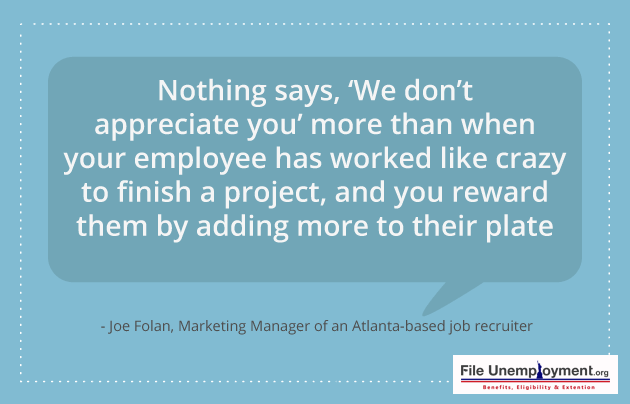Just like how employers have expectations from their employees, in the same way, workers have expectations from their organization. As the younger generations reach the working age and start working in companies, there are certain expectations that they feel are important for a healthy work life. The younger generations are not willing to spend their youth working in an environment that they do not like or spend years working in a job that does not offer any growth.
Here are 10 things that workers want from their employers:
Purpose
These days, just a fat paycheck and the usual bonuses don’t satisfy employees. These days the management cannot be the only ones who know how everyday activities in the company contribute towards the company’s goals. Even employees want to know the purpose of the work that they do on an everyday basis. Employees like to see the impact they can make in a company and then achieve it through their hard work.
Employees want jobs that have meaning and give them a sense of purpose. This generation likes to work for companies that are socially responsible and impact the society in a positive way. 50% of Millennials would be willing to compromise on their pay for a job that matches their own values. The percentage is likely to be higher for Generation Z. This means that employers must make the employees aware of how their work influences the organization’s progress, especially the younger generation.
Appreciation
Workers like to feel appreciated for the hard work that they put in. They work many hours all week long and undergo a lot of stress. All they want in return is to be shown some appreciation or an acknowledgment for hard work.
When employees don’t feel appreciated at work, it tends to severely affect the company’s productivity and revenue. There are plenty of ways to show appreciation, however, the simplest are quite often the most effective. As a manager, a simple way would be to compliment your employees telling them why you’d like them to work on a particular task before delegating it to them.
Goals
To foster a sense of purpose in your workers, it is essential to create a set of clearly-defined goals from time to time. The goals that are set need to be measurable and obtainable. Setting unachievable goals could have the opposite effect and make your workers give up even before they begin to work towards them and could further reduce their morale. Hence, it is extremely important to set goals that are attainable.
For example, if you are setting a goal for the sales team, you will need to set the number of deals that the team is required to close in an expected time period for a fixed dollar amount.
Sympathy with Personal Issues
Employees want their bosses to treat them like humans and be sympathetic towards their personal issues. Dealing with personal issues is bad enough, telling your boss about it becomes all the more difficult, but getting an insensitive or curt response aggravates the situation all the more. Employees need to be treated with compassion. As a manager, when an employee who has personal issues approaches you, put yourselves in his/her shoes and think how you would like to be treated.
Job Security
Employees want to have a sense of belonging in their organization. Many employees have the fear of losing their job. It is vital to be honest with your employees from the beginning and not let their fears get the better of them. However, it doesn’t need to be done if an employee has repeatedly offended the company and is going to be fired due to his/her wrong doings. If employees are not reassured about their job stability, the staff will resign and switch to a different company instead.
Commendable Wages
While a sense of purpose is important, money is essential to survive. Surveys indicate that the number one thing for employees about a job is salary. Everyone wants to be paid for what they’re worth. In order to have bright and skilled talent, employers who can afford to pay should just do that. It could be a pay raise or a periodic performance-based bonus, but it retains resourceful talent.
Opportunities for Growth
Employees want to learn, grow, get promoted and advance in their careers. In a poll conducted by Gallup, 87% Millennials said development is important in a job. When employees are satisfied with the career development opportunities that are available in a company, the likelihood of them to remain with their employer is high.
Nobody wants to do the same work for years and not be given a chance to acquire new skills, grow and advance in their career. There isn’t something that’s much worse than joining an organization and realizing that there is no room for growth. It is important for employers to provide employees with opportunities for advancement and skill set development.
Good Working Environment
Workers spend the majority of their day at their place of employment. They expect to be treated with respect and to be given adequate equipment that’s required to do the tasks delegated to them. Basic features like a desk, working computer, hygienic toilet facilities, kitchen, stationery, etc must be provided. The lack of basic features can cause inconvenience and create a negative atmosphere at work leading to employees leaving the company. The employers need to ensure that the work environment is happy, energetic, interesting and fun.
Work-life Balance
Some surveys report that, apart from salary, workers look for work-life balance while choosing whether to take a new job or leave their current job. The more time employers demand from their employees, the less time they have for social gatherings, hobbies, and learning new skills. Working extra hours creates resentment and risks an employee’s health.
Employees want flexible work schedules and telework options that accommodate their personal goals like attending yoga classes or learning a foreign language.
Fairplay
Employees want to be given equal opportunity and be treated fairly at their workplace. If one employee receives special treatment, it’s bound to create friction in the team. Whether the inequality is in terms of a better shift, more money, or an undeserved promotion, preferential treatment by an employer can destroy the team spirit and cause demotivation among the team members. If “who you know” becomes a reason behind the preferred treatment, it critically affects the employees’ morale.
For companies to recruit and retain dynamic, skilled and loyal workers in the organization, it is highly essential for them to meet the expectations of such employees. Workers these days are aware of their worth and if their current employer doesn’t recognize it, they will start looking out for another employer who will. It is highly essential for employers to show their workers that they value them by meeting their expectations. If you have young talent in your organization, here are some strategies to help you retain them.






